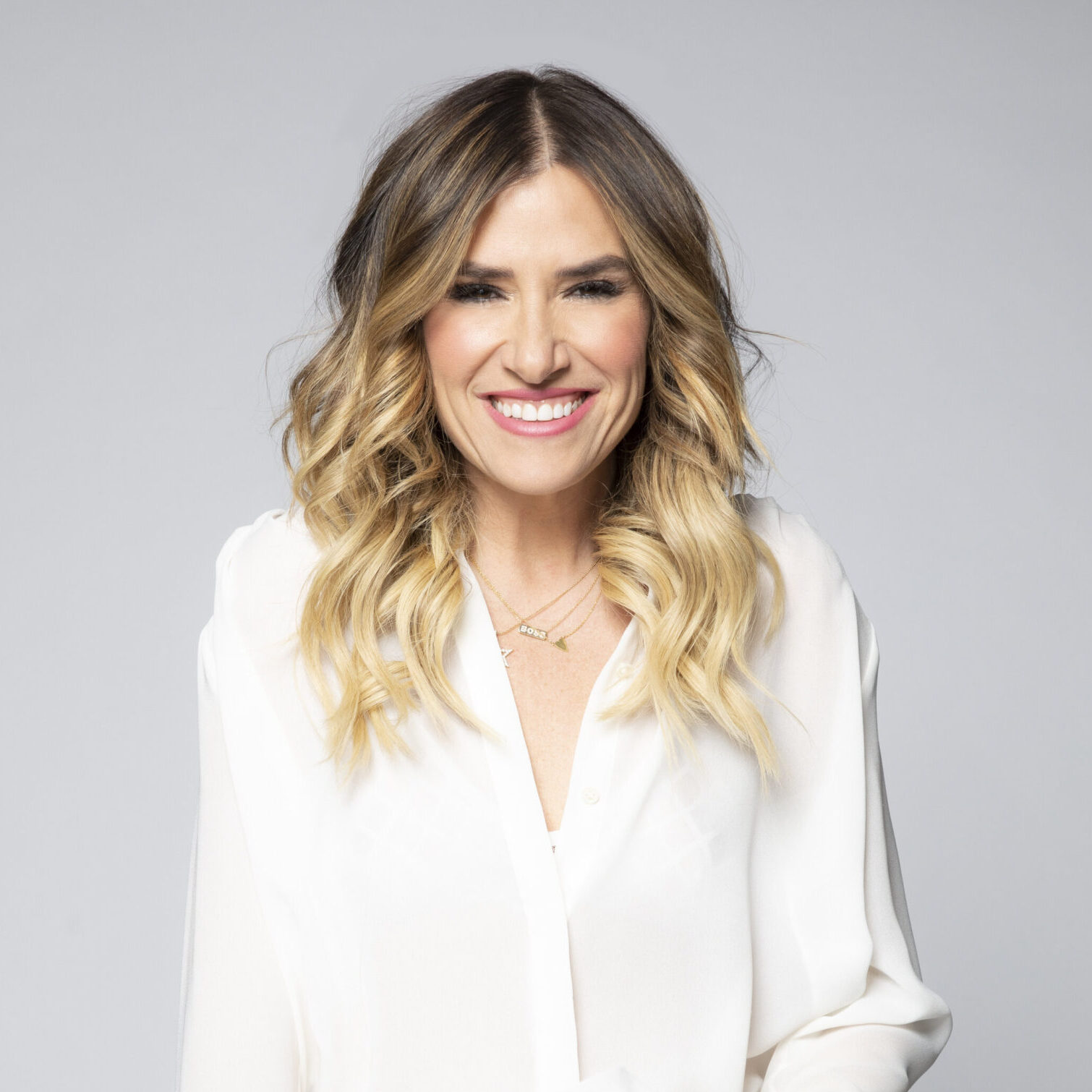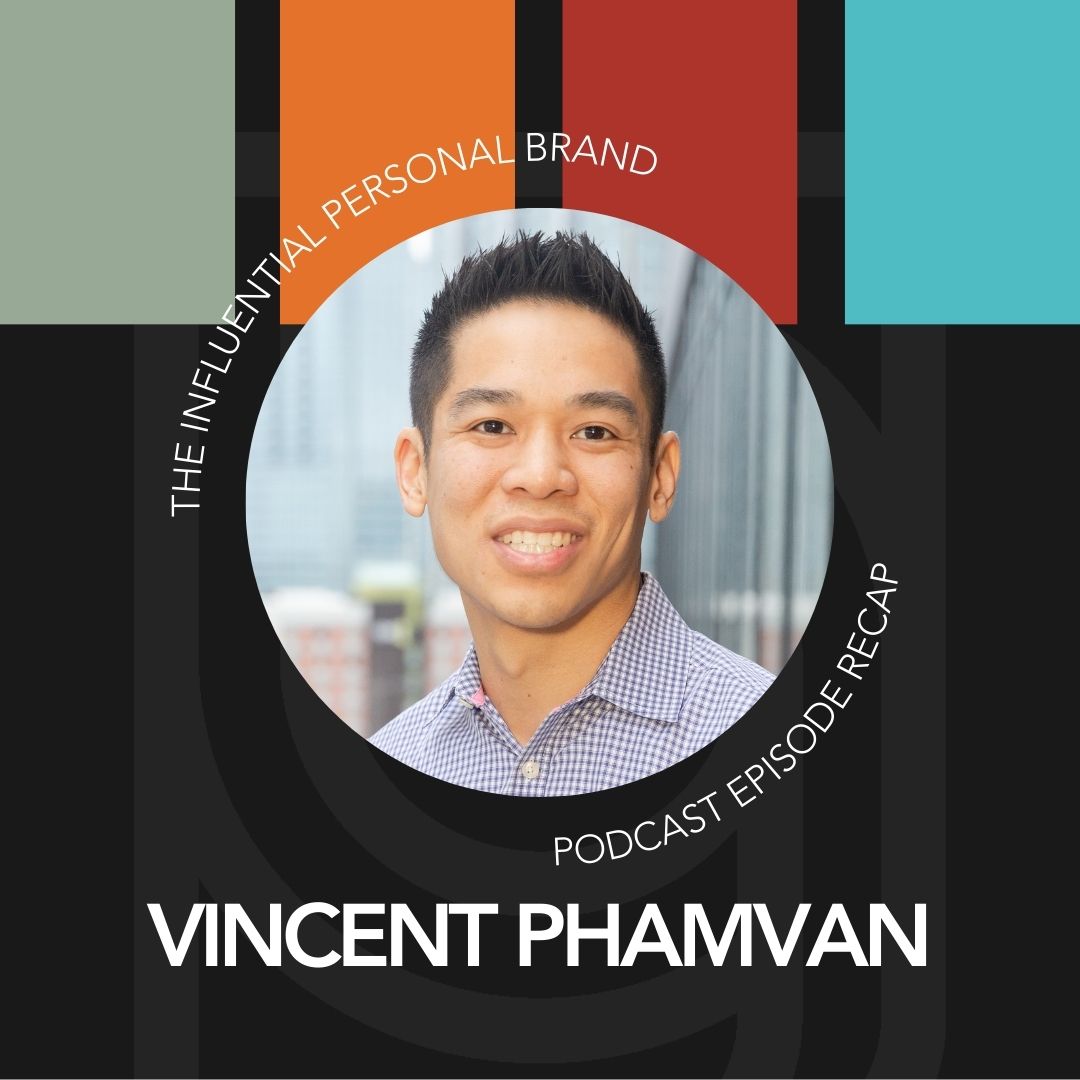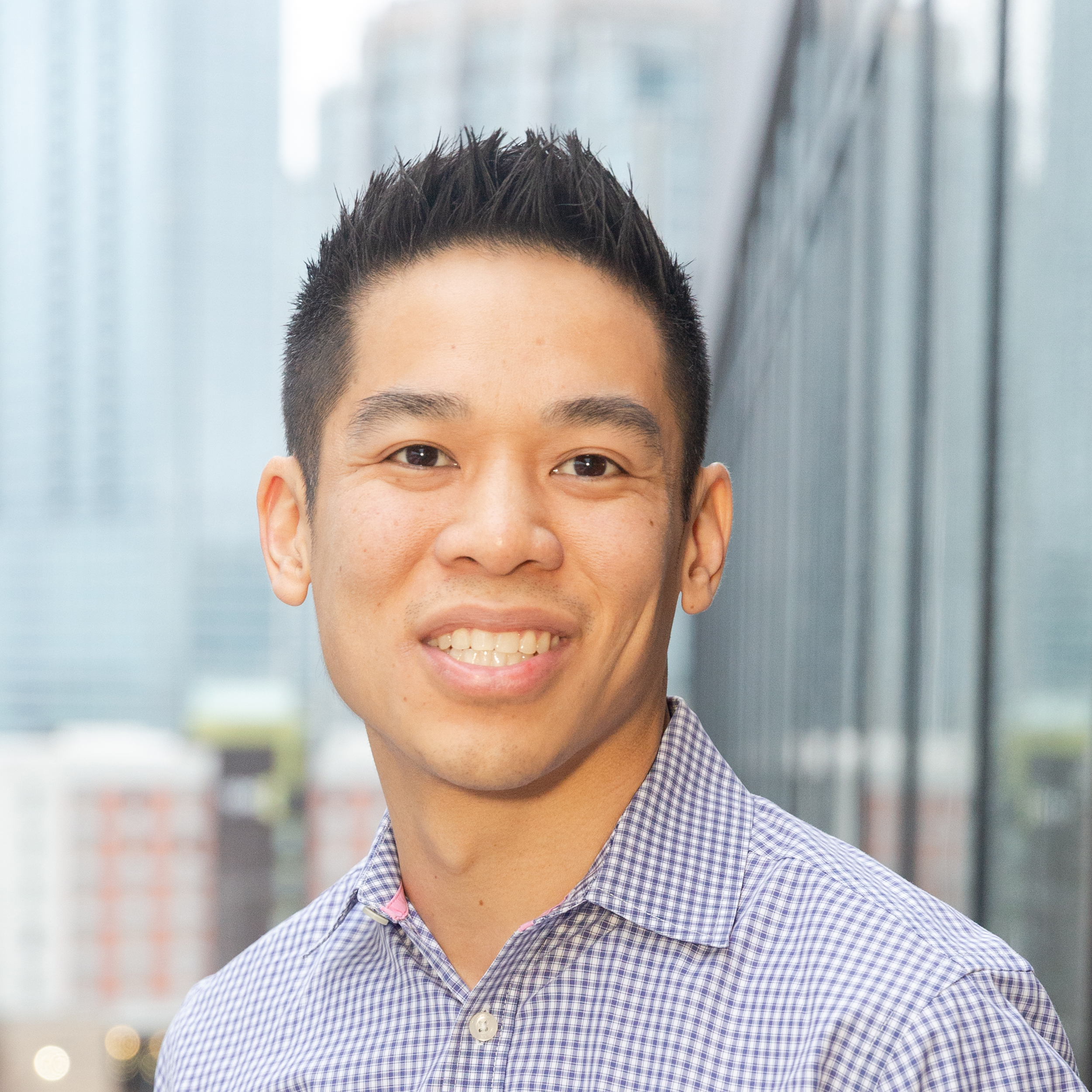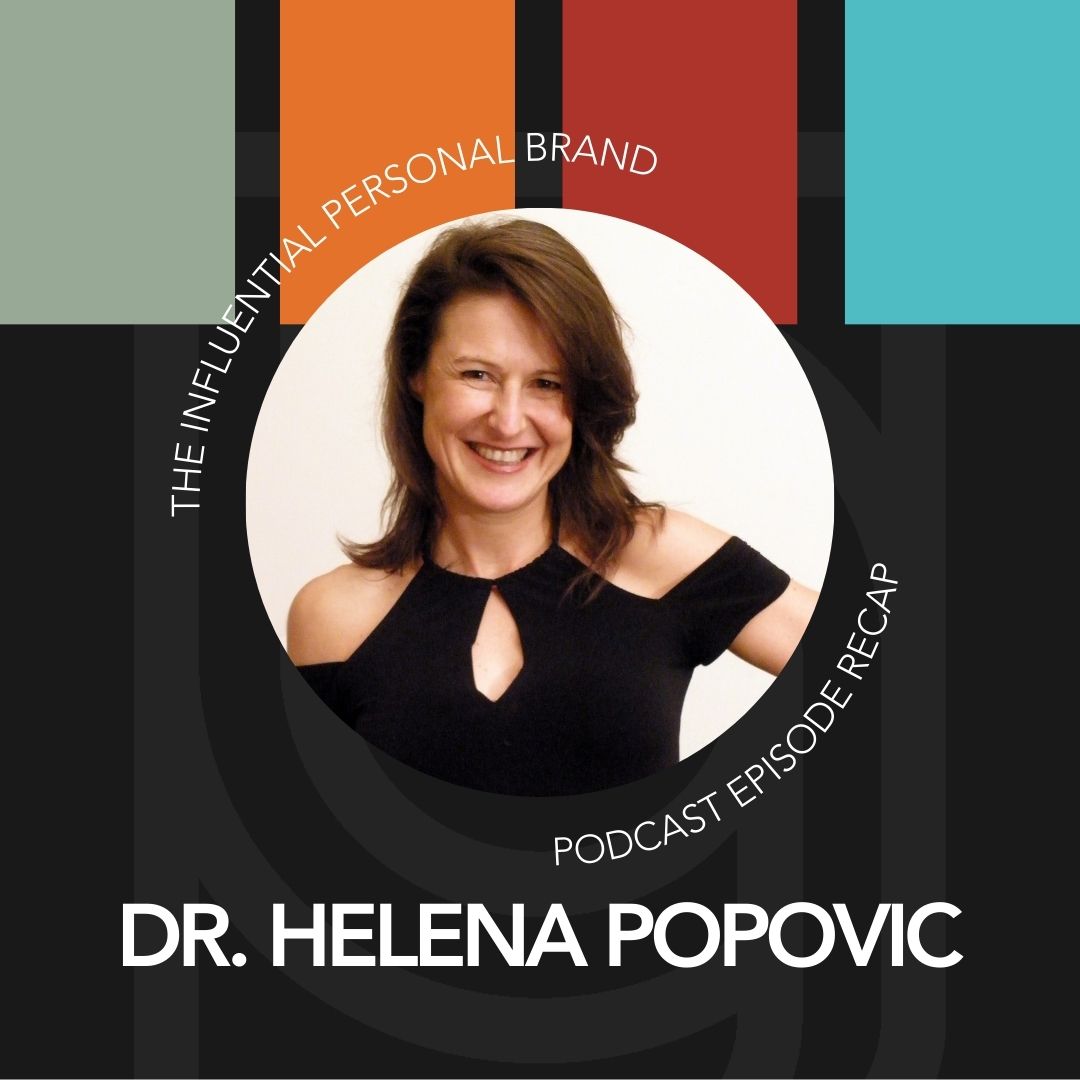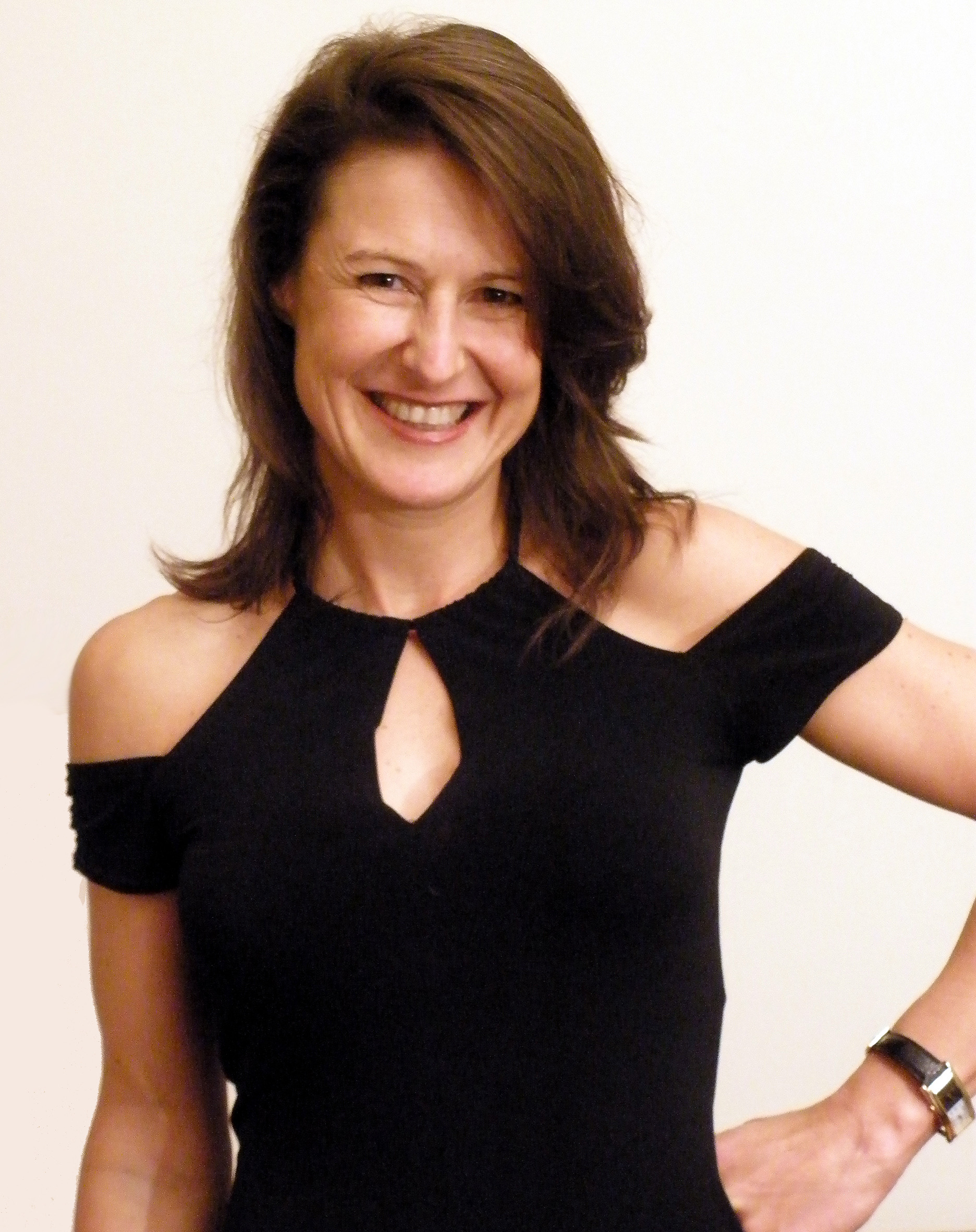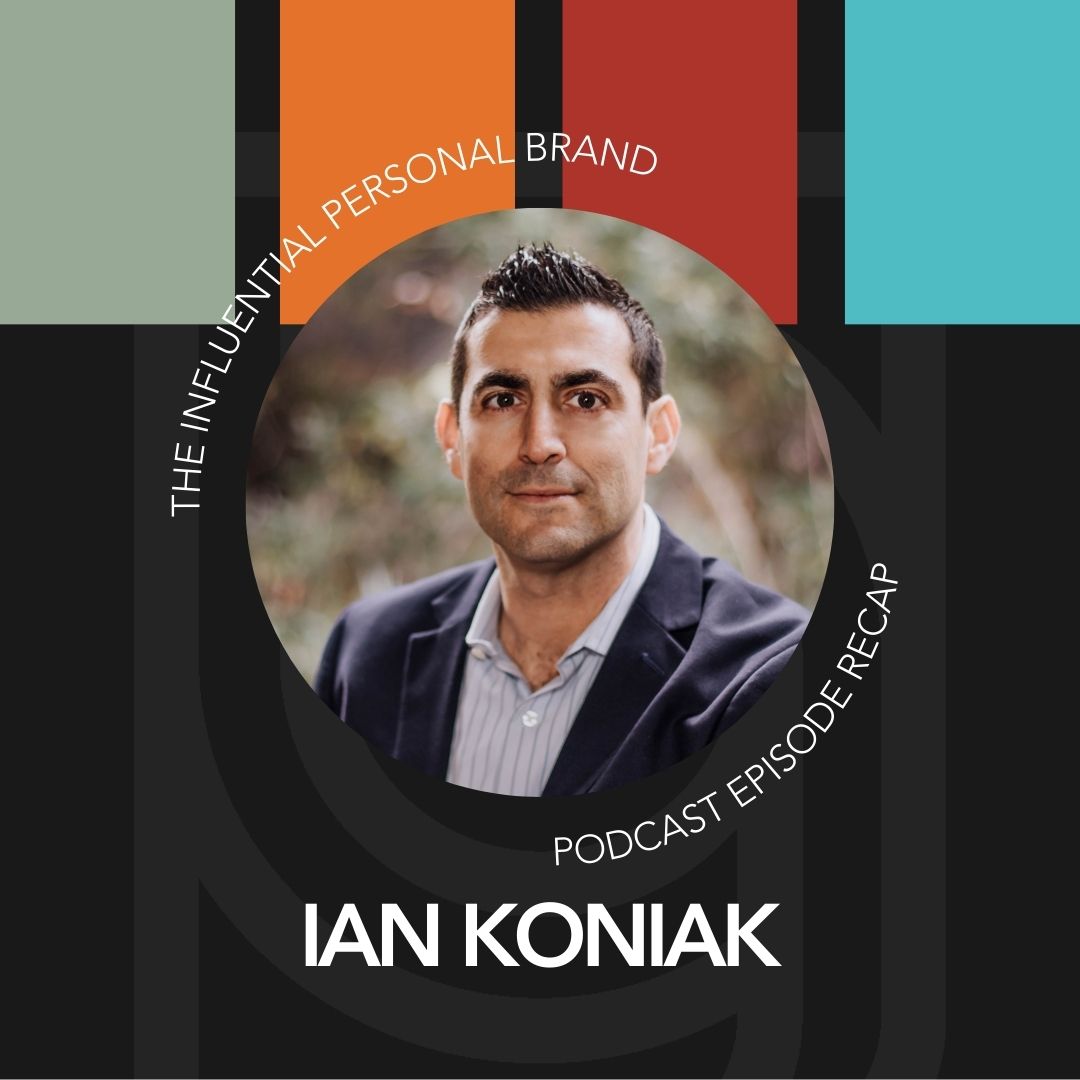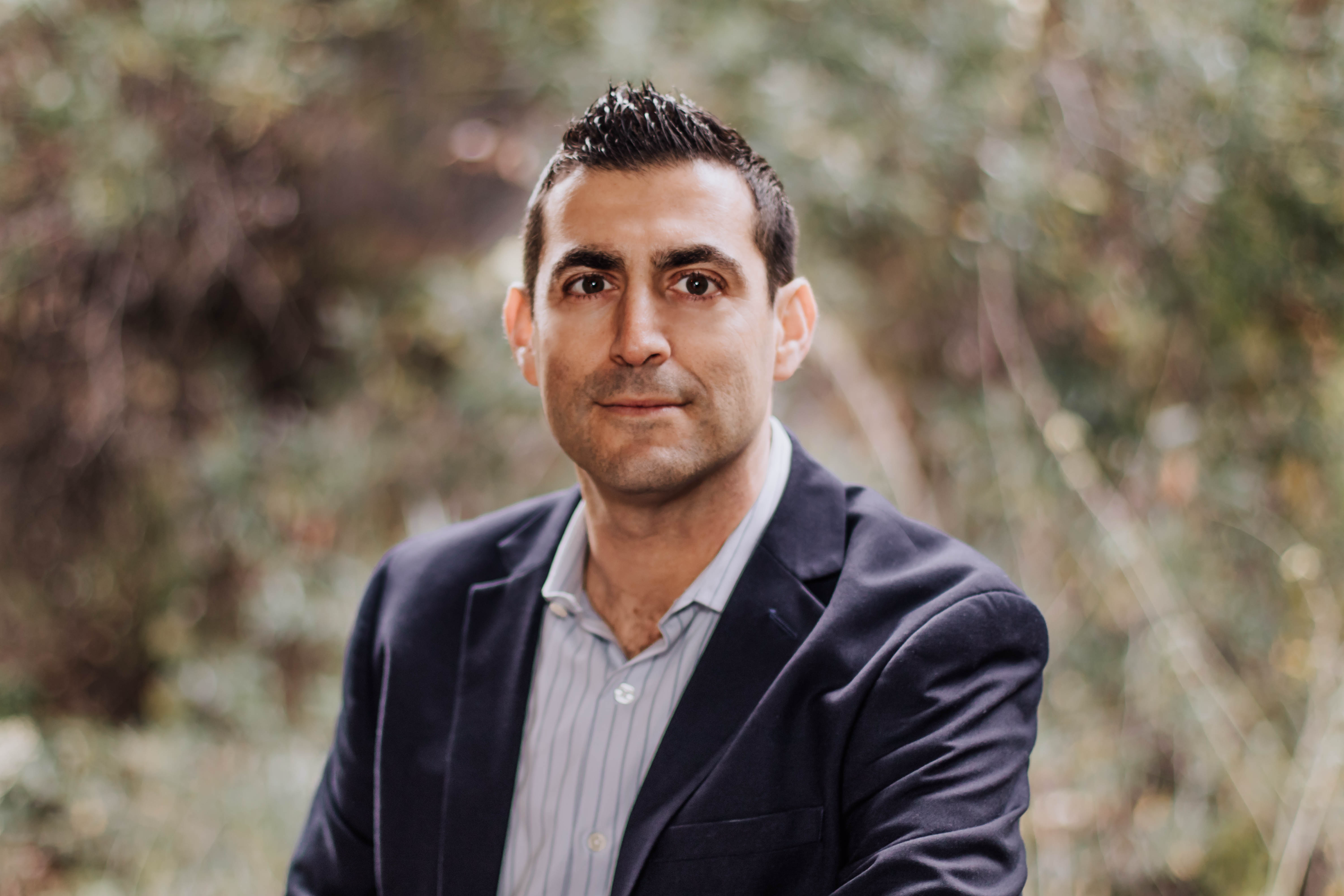RV (00:02):
Well, I am so impressed and inspired by this next woman you’re about to meet. Alli Webb is someone who has become a friend. She’s a brand builders group client, and she kind of famously sold, founded and sold Drybar for $255 million. This is back in 2020. So she started Drybar in 2010. It exploded into over 150 locations. Very, very successful product line. She became a New York Times bestselling author as part of that journey, and she has since kind of evolved and, and adapted and diversified into starting many different businesses and using her personal brand to really create enterprise value. She one of their current projects is called Squeeze. I’m AJ and I have been to Squeeze. We love it. It’s, it is massages. They have you know, kind of like health spa sort of situation. And they, Brightside and Beckett and Quill is other businesses that she’s involved with.
RV (01:01):
She’s got a new one called Canopy, where she joined as the, the president Canopy’s, super chic reimagined, humidifiers are making big waves in the beauty industry and innovative beauty device category. So lots of stuff around beauty and health. She’s been a board member of several companies. She’s been on the cover of Inc. Magazine’s, how I did This Issue, she’s been named the hundred most Creative People in Business by Fast Company. She’s been featured on Fortunes 40 Under 40 List Marie Claire’s most fascinating women. And she’s just an amazing, amazing woman who has accomplished so many things. We got to work together on her recent book, the Messy Truth, which of course became a USA Today National Bestseller. And Ally and I became friends, and I was just like, you gotta hear this woman’s story. It’s really, really powerful. So, ally, my friend, welcome to the show.
AW (01:55):
Thank you. And thanks for that warm introduction. I appreciate it.
RV (01:59):
So, I am curious, you know when I think of entrepreneurs, I, I, I almost sort of divide the world into the entrepreneur world, into two categories. There are people who are entrepreneurs, which are like content creators, and, you know, they like do speaking or coaching or, or whatever. And and, and then there are also people in this category who are like you know, professional service providers, financial advisors, CPAs direct salespeople, you know, real estate agents all like actual on, they’re, you know, by definition entrepreneurs, independent contractors, stuff like that. And then I have like a different category. I, I don’t mean to be offensive to either group, but I call ’em real entrepreneurs, which are people who like actually start a company, build it, build it, have to create the marketing, the sales, the product development, the hr, like the whole, the whole thing.
RV (02:57):
They’re not kind of using someone else’s operating system. They’re like building it. And I feel like a lot of the quote unquote real or regular or traditional, maybe traditional entrepreneurs would be a a, a better sense. They kinda look at the people who use their personal brand entrepreneurs and go, eh, I don’t need to build a personal brand. I’m building a business to operate without me. And that’s the whole point. And then you are different. You’ve done both, right? You have straddled both. You’ve built so many real businesses, successful scaling operating entities, but you’ve also put a lot of time into your personal brand. And so I’m just curious, why have you done that? How do you think about that? How do you value it? How do you, how do you justify the quote unquote, time away from your real business to like, kind of build your personal brand? So I’m just curious about that,
AW (03:55):
About that. Well, gosh, I love that framing and that question, and I sitting here listening to that and thinking like, it’s so nice to be asked these kinds of questions now. Like, I feel like I’ve, like graduated from, like, so tell me how you build Drybar, which, you know, is like a, an honest question that most people ask me. And, and, and I’m always happy to share it, but it’s not, it’s, it’s interesting to be asked a question in that framing. So anyways you know, I think that it was a progression, like a gradual progression. And, and it’s funny, and I’m sure you, you experienced this too, as you speak to different entrepreneurs you know, who want different things. And there are those entrepreneurs who, to your point, want to build and grow and scale a company that doesn’t potentially need them eventually, and they can step out and do something else, and they wanna be behind the scenes.
AW (04:46):
You know, I think it’s a, it is, it is a bit of a personality trait. And I, I was just like talking to an entrepreneur that I’m mentoring yesterday, and, and she was saying that her team is really pushing her to be out front and build her own personal brand. And she’s like, I don’t wanna build my own personal brand. I don’t like being in front of the camera. I don’t like being out front. Mm-Hmm. She likes being behind the scenes. So it’s a real, like, personal question of what you like doing, what gives you energy? And, and, and I didn’t, I wouldn’t have known the answer to that question until it was like, thrust upon me. And, and I was, you know, rightfully so, the, you know, brand ambassador for Drybar. It was my idea, it was my baby. I was the hairstylist. Like I was the mom.
AW (05:26):
I was catering to women, like I was the client. So it made sense on multiple levels for me to be the, the, the face of the brand. But you know what, what, what happened as a result of that for me anyways, was like when I, you know, started being on TV and I started being in front of the camera, and I started like, you know, speaking on the brand, like, I really fell in love with that aspect of it, you know? And but it wasn’t like, I wanna go be an actress and be on TV in that regard. Like, I really loved talking about these brands that I built, and more so, because I learned so much as, because I didn’t, you know, this, I didn’t go to college. So I don’t have like any like, degree or any real like pedigree in building a business.
AW (06:11):
I didn’t, I didn’t know a lot when we started, other than the fact that my parents were entrepreneurs. And I had, I had that a little bit, but, you know, I learned on the job. Like, I always say, I feel like I got like a, you know, a business degree growing and building Drybar, and I did, I learned so much. And so I feel so compelled to share all of that. Like, I have so much in my brain that I don’t ever think about, but if you ask me a question about a certain thing, I can usually pull it up a pretty good answer and experience around that thing. And you know, and I think like a lot of, as I’ve gotten older and I’ve been through some, some like pretty crazy hard things, you know, I think it’s brought out this like, you know, piece of me that wants to be of service in lots of different ways.
AW (06:57):
And I think that like my, one of the best ways I can be of service to people is by giving back, like what I’ve learned and being that you know, that place for people to go for when they feel like, I don’t, you know, you’ve done this and, and done that. Like, can, can you, you know, paving the way a bit. So, so I think the decision to build a personal brand ca that’s where it came from, is like a real love for all of it, you know, like, I, I love being on stage. I love talking about my story. I love giving back. And so that’s just, that is a love of mine. So that’s what I’m feeding, you know? And, and I don’t, you know, after, I mean, I built Drybar and I can tell you a hundred things, hundreds of things about how that all happened.
AW (07:41):
But like with Squeeze, for example, Brittany Driscoll, our head of marketing, she, or, or former head of marketing, Drybar, she’s the CEO of Squeeze. She’s in the day-to-Day. I’m not in the day-to-Day. I don’t care to be in the day-to-Day anymore. I’ve done that. I don’t, it is not where I get my energy and life and light from. So, you know, for me, graduating more into the building of a personal brand at this stage felt right. I couldn’t have done this so much in the dry bar days. It was towards the end of the Drybar days that I, I recognized that I wanted to do that.
RV (08:11):
So is, and you think that’s really is how it is, like the success of Drybar, you started to get noticed? Did, did, did, did media outlets start reaching out to you, or did you reach out to them? Like, how did that transition even happen? Like, you’re just, were you minding your own business building, trying to build a successful enterprise? Or were you like hiring PR firms and really trying to get like placements and stuff?
AW (08:34):
Well, I mean, I had, I had a lot of different careers over, you know, like in my twenties, which I highly recommend, you know, people like if you’re, if you’re young and you’re, or even if you’re not young, if you’re listening to this, like go try all the, all the things, you know. And then that’s what I did in my twenties. Like, I, I became a hairstylist, but I also like worked in retail and I was, was, you know, I, I ended up working at Rogers and Cowan, which is a massive PR firm for, you know, this guy named Paul Fur, who was ran the music department. And that was, that experience really taught me how to write and all, all the stops. My point is, all the stops along my journey would, would turn out to be really important. But, so because I worked in pr I really saw firsthand how important PR was.
AW (09:17):
And, and I think it, it looks different in today’s society because it’s like kind of a different kind of marketing PR used to be just like magazines and tv. Then that was it. It’s obviously the social media has changed a lot, but I knew early on before we even opened the, the Doors to Drybar, that we were like, I knew we, I knew we would be able to get good PR because we were such a new concept. So it was like a no brainer. We were gonna go do that. It wasn’t until, you know, we were crafting the pitch, which you do when you’re, you’re working on a, you know, trying to, you know, pitch sell something out there that it was like, oh, okay. You know, in con early, early conversations with our PR team was like, what, what makes sense here? It’s like, well, this was Ally’s idea.
AW (09:57):
This is Ally’s baby. And my, my brother and Cam were, were integral parts. It would never have gotten to what it did without them. But from a relat relatability standpoint, and to sell this to the public, I knew we knew that. Like I needed to be the one out there talking about it. And I didn’t know anything about that. I didn’t know how to do that, you know? But I, you know, we, we recognized that, you know, it was only one person that was gonna really be able to speak to the brand, and it made the most sense for me to do it. So, you know, from the get go, I was doing that, like the first week we opened Drybar, because it was such a new concept. Like, we had TV crews coming in, and I was the one talking to them. And, and I, I mean, I was like, I mean, I, I couldn’t even bear to look back at those interviews because I was so green and I didn’t know how to speak to media yet, and I’ve had media training and, and all that.
AW (10:43):
So it was this kind of slow progression. And I was also really fortunate and, and amazing timing that I was really at the forefront of the entrepreneurial craze that we’re in now. You know, it’s like I, in 2010, like nobody knew people, founders, and CEOs yet. Like, you know, it was like, I remember like looking around going, who else is like me here? Nobody. It was like, maybe, I always think like maybe Donna, Karen, like, there were very few female founders that were known that had started. I mean, the landscape is so incredibly different now, but like, I was at the forefront of that alongside like Candace Nelson and who started Sprinkles and like other, there’s so many female founders now, which is awesome. But, you know, so I, I was at the front of that getting a lot of, you know, talking a lot.
AW (11:31):
And then Drybar became such a big craze, and it was such a love brand, and people fell in love with it that they wanted to talk to me about it, you know? And so it just kind of came, it all really, I mean, we hired PR to build the brand, but I was always the spokesperson. And so I was always the person that people wanted to talk to. And then, and then it kind of, they people became interested in lots of things about me, not just my founder, at not just me being a founder of the company. Like what was I wearing and what trends did I see happening and that kind of stuff. And that was
RV (12:02):
Fun. Well, I wanna talk about that because, you know, there’s this, there is this thing of like, oh, you know, started a company grew, you know, had TV crews there. The first week we grew the company, I was on magazines and then, and then we sold it for 250 million. Like, all of that sounds like a pretty Cinderella story. But then as you became popular and we’re in the public eye, I feel like your life took a little bit of a different direction. So like, what is some of what happened like after Drybar for people who don’t know the story?
AW (12:36):
Well, it’s certainly not a Cinderella story. I mean, and if, and if you know, you know, my book The Messy Truth, like, I, I really talk a lot about how hard it was. And like the first shop, yes, it was very popular and people were showing up left and right. The second shop, crickets, third Shop, crickets. It took so much effort and marketing to get us there. So it wasn’t just like, we opened it, it was amazing. We sold it for 255 million. I was at, you know, on a Shark Tank and on covers of magazines. Like, it did not, it didn’t happen like that. It was a, it was a lot of blood, sweat, and tears without a doubt. And my life fell apart during Drybar. It wasn’t even just after Drybar, you know, it was like my first marriage to my co-founder, you know, fell apart.
AW (13:18):
And my son went through rehab and, and, you know, and Maria, you know, you know a lot about this, and there’s a whole chapter in my book about my son and, and what, and, and the, and the pain that he went through. And, you know, it is as bad as like it can get for a parent. I mean, it was like literal hell. And it was, you know, and the company was like six or seven years in like, still on this like, upward trajectory. But luckily we had built out such a strong foundation and like such an exec, great executive crew, that the company was able to keep going because I was not, you know? And, and so, yeah, I mean, there was so much falling apart in, in the building of Drybar that happened to me personally, you know, that I, you know, gosh, it was, it was so, so hard. It was so, it was definitely not a Cinderella story, for sure.
RV (14:07):
Yeah. So, so then, so, so that, that’s interesting. ’cause I think of it as being after, but it really was, it really was going while, like as you guys were still growing,
AW (14:18):
There was a really, then there my life fell apart again after Yes. But even during it was there was like, I am navigating some really tough waters for
RV (14:27):
Sure. So what, so, so tell us about the Messy Truth. So you mentioned the book, right? So the, the book is the, it, it talks about some of this. So, so why this book? What’s in the book? Like, how does that apply to your entrepreneurial story?
AW (14:40):
Well, it was been an interesting evolution for me. And the fact that I am, I mean, I decided, you know, I was, I decided to call the book The Messy Truth because I wanted, I felt really comp compelled. I think I always thought I’d tell the story of my, the growth and the, the fascination of, of, of how we did Drybar. ’cause People love it so much. But I didn’t, I don’t know that I ever thought I would tell like such a personal, such a, such a personal side of it, you know? And I think that that, that came from when I was in the thick of, of Dry Bar and my life fell apart, and I felt, and social media had, you know, was a really big deal then. And I just felt like I didn’t wanna be inauthentic with, with where I was and, and showing this version of me that was like shiny happy on tv, growing this massive brand and all this greatness in when really in the background I could, you know, get barely get off the floor and I, it it at in a period of time.
AW (15:40):
And so I think I, I couldn’t like lie about that. And so I was, I was, you know, transparent about it to a degree. And what I learned, the feedback that I got, which was so beautiful, was that like, it was really resonating with people because it was like, oh, the polarity of like, she’s got all this success, this company that’s thriving, but holy, her life is falling apart. And so showing that and, and that connection that was formed with so many people that I didn’t even know who were like, oh my gosh. Like, it was like a, it was like a sigh of relief that like, oh, you can both can exist and frankly, both do exist. I mean, I don’t, I don’t think anybody lives a life that’s like perfect and not hard at different times. And so I felt like, I felt like such a, a calling to that, oh, you’ve gotta show all of it.
AW (16:32):
You know, I have a great life. Like, I’m very blessed. I have, I’ve, I’ve had a really great life. I’ve also like, you know, been on the floor and felt like I wanted to die. So I’ve had the extremes of both. But I think that, that, talking about that more the messy truth of it all and, and making that the underbelly of my book, that it’s very much a business book, but I, I always say it’s like a, a business book and a and a, you know, and a memoir had a baby, and this is the book, you know, and it’s because the book does really highlight all of it. And now I just feel like I’ve really taken the messiness to a whole new level. And like, you know, like I was telling you before, starting this messy collective, which is, you know, all the lessons and all the things that I’ve learned, but like, really capitalizing on the, capitalizing is not the right word, but like you know, and you can edit that out, right? ’cause I hate
RV (17:27):
That. Yeah. We can edit, we can edit that if you want.
AW (17:30):
Yeah, edit that out because I don’t wanna say capitalizing, but, but more like, you know, becoming like the poster child for messy. And like, all of my friends say to me, not all of my friends, but some of my friends are like, you gotta tell everybody everything. And I’m like, first of all, I don’t tell everybody everything, but I do feel really compelled to like, share. And I’m still trying to figure out where that all comes from. But now I feel like it is my, it has become my brand to be this like, very like, unfiltered, tell it as it is, you know, person. And I get so much great feedback about that and how much people resonate and love it, and how grateful they are for it. So of course, I wanna keep doing it, you know, and I feel, you know, really, really compelled and like, it’s my calling to be to messy , you know? Mm-Hmm. .
RV (18:19):
So talk to me about how’s your personal brand evolving now? I mean, you, you’re, you have clarity on sort of like, it, it seems like this sort of unfiltered, open, honest is like what it is. But from a business perspective, are you still building companies? Are you investing, are you operating, are you boards on, like on boards? Are you just trying to try to like, own minority stakes and let people run it? Like what, what, what are, what does this next season look like in terms of the evolution of the business side of your personal brand?
AW (18:57):
Yeah, I mean, honestly, like a little bit of everything you just said, you know, it’s like we, we do have, you know, companies like Squeeze and Brightside and Okay, humans and these brands that are kind of, you know, that I’m an investor advisor in, I show up to the board meetings, give my thoughts, help where, where, where it’s needed. That’s like one bucket. And then I am on some boards I have a harder time sitting on long phone calls. So I don’t know if I’ll continue to do that. I, ’cause I was experimenting the last couple years of like, what do, how do I wanna spend my time? I do mentor a lot of different entrepreneurs. Like there there’s a, a site called Intro where you can, you can pay to like, have time with CEOs and founders. It’s amazing. And I do that and I enjoy that.
AW (19:41):
You know, and I am, which I haven’t publicly announced yet, starting another brand in the hair space, which I’m gearing up with my brother to do right now. So yeah, it’s like I can’t really stop. I have so many, I have so many ideas and so many things that I wanna do. And I have like, you know, people talking about optioning my book, and then there’s like a, a show idea in the works. I mean, honestly, I couldn’t even, like, it would take a, it would take me a pretty long, long, long list of like, all the things that I’m working on, but it’s all in this vein of like, let me, like, I’m throwing a lot at the wall and let me see what sticks, which is so funny. Rory, and I don’t know if you you’d wanna cut this or not, but I remember when we were sitting in that room and you were talking about Lewis and how when you met him, he was doing so many things and you, like, you helped him like distill it down. My focus.
RV (20:31):
Yeah,
AW (20:31):
The focus, which, which I think about that conversation a lot because I am in that state of, I’m doing a lot of things right now, but I think I’m doing it purposely and I’m aware of what I’m doing because I wanna see what works, resonates, is, you know, is, is is lucrative, like all the things. And I’m not quite sure. And there’s, there’s a handful of them that I’m working on right now which is, which is fun. And I, I almost feel like I’m, like, in my early twenties again, like, I’m like, I’m gonna do this and I’m gonna do this, and I’m just gonna see what, what feels best to me, what, what seems to be working? And so I’m, I’m at this like really fun stage, but
RV (21:07):
You’re kind of experimenting with different Yeah, yeah. Totally different things. The, the tell me about what, what’s the difference between being on a board and being an advisor? Like I, ’cause I think that does happen that we see this a lot with clients es especially as they get more notoriety and as they become more successful, there’s, you know, brand deals sometimes then become equity deals and like consulting relationships sometimes become equity relationships. In your mind, how do you delineate, you know, what, what’s the different to be a, on an, to be an advisor to a company like advisor, investor, board member? Like, how do you think of those roles differently and how do you choose which companies to play each of those roles with?
AW (21:56):
Yeah, I mean, it’s, it’s all like, it, it can look anyway you want it to. I mean, and, and I’ve tried it a handful of ways, you know, I mean, in, when I first, you know, sold the company and made some money, I was pretty, like, I wanted to join some boards and I did that. And like I said, it, it didn’t seem like exactly the right fit for me. It’s different being a board of my own company. But, you know, and then I also was like investing in a lot of brands. Like, I have a lot of, I have a probably like 20 or so investments in companies that are like my friend’s companies, or just like a company that I really believed in, you know, re regardless of what my financial advisors were, like, this feels like a real risky deal. I’m like, I know, but it’s like one of my best friends and I’m doing it more for like, you know, for them to have, to be able to like, use my name or call me up and get some advice and like, you know, kind of a loose relationship, you know.
AW (22:51):
And then there’s like, and then there’s situations where I’m like an advisor for equity, and I didn’t put any money into the company, you know, so they’re able to leverage my experience, have a conversation with me, and I’m not getting financially compensated, but I do have a little stake of equity in the company, you know, so it can, it can look a lot of different ways and you can negotiate really whatever you want. And, you know, it’s just kind of, it is a negotiation depending on what you want. I have, I’ve been through so many different scenarios at this point that I can kind of, you know, at this point I’m, I’ve decided to not invest mostly in most companies unless it’s something really that really gets me and rather say, Hey, I’m not gonna invest financially in here, but I’m happy to be an advisor to the founder, whatever, for equity. You know? So there’s, there’s lots of different ways you can, you can form it and it, it really can be, it’s just a negotiation.
RV (23:44):
Uhhuh . So when you talk about an advisory, like investor equity is larger percentages typically, right? Advisor equity is typically smaller or, yeah,
AW (23:55):
I mean, it all depends. I mean, all depends. It just depends. Yeah. It just kind of depends on what’s happening with the company. Like what your, you know, what your outlining as is, what you’re going to contribute to, you know, the company, the founder, how much, how much time and energy you’re gonna give them. You know, it’s, it’s really, it can run the gamut.
RV (24:11):
Mm-Hmm, . Yeah. That’s a, that’s fascinating. That’s fascinating stuff. So I think are, you know, going, going back, you know, thinking about how you’ve done as an entrepreneur, right? You’ve done all these different environments, you’ve worked with all of ’em. W what’s the advice you would give to a younger version of yourself who’s just starting out building your first company, going just like, what, what is it, what is it that you wish somebody would’ve told you about the journey of an entrepreneur and like what you need to be prepared for emotionally? And then maybe any, like, here’s the big tips. These are the big things that like, you know, you need to hire a good lawyer, or, you know, just like anything that you wish it was like, man, I, I was pretty naive in this area. Somebody should have told me this.
AW (25:08):
Yeah. I mean, I was , I was naive in most areas, and I de you definitely should hire a good lawyer. Don’t sign anything without a lawyer. There’s one nugget. And this is largely what’s in my book, so many of these lessons, right? But, but I would say, you know, I, I think the overarching thing that I think about, ’cause I do get asked this question a lot, is like, I spent an inordinate amount of time worrying and being stressed, and it didn’t do. Like, it doesn’t help anything. Like, it doesn’t, in, in fact, it like, creates the opposite, you know? It’s like I, I was so nervous and had such like a tight grip on my company and it, it caused me to, you know, show up. Not great a lot, for sure. And and I, and, and honestly we’re, I think a lot of it is like I don’t, I don’t know if you can learn this lesson before you get to the other side or not, because I’m on the other side, you know?
AW (26:10):
And also, like, I’m just a different person. I’ve been through some real life changing things and I have, you know, as you know, I’ve, you know, really come to find faith in my life. And I think that, like, I didn’t have that sense of, it’s all gonna be okay. It’s all gonna work out one way or the other. You know? I really truly believe that now in a very profound way that I didn’t have that back then. You know, back then I was like, I felt like I had to work myself into the ground, you know, I had to work constantly. And there was, it was like some sort, I talk about this a lot. Like, it was like some sort of badge of honor to work, you know, these crazy days, you know, days that you just like, like are working for the moment you open your eyes to the moment you close your eyes.
AW (26:54):
And like, this was like, and that is a little bit of like the entrepreneurial, you know, plate that we have because we, we breathe this and sleep it and drink it, and it’s just like all consuming, which, which it is. But again, if I had it to do over, I would like put it down a little bit more than I did and, and try, because I did get burned out so much. And there was a, you know, there was a lot of my life that I wasn’t paying attention to my health and to my wellbeing and, you know, things that were, were really important because I thought if I took my, you know, my hands off the wheel for a second, that the whole thing was gonna implode, which it wasn’t, and it didn’t, you know, and, and, and being, you know, like I was saying before with my son, and like the divorce, like that was probably around, I don’t know, year six, seven, something like that.
AW (27:40):
You know, it’s like I, I, I literally, somebody was saying this to me, I heard somebody talking about this not that long ago, that like, you set your company company up in a way that if, like, god forbid something happens to you, that the company will still exist and be okay for many, many years. I don’t think that was the case with Drybar. You know, it was like, I was firmly at the helm of that company, which is great. But like, you know, because we brought in a professional CEO at like two or three years, and then we built up this great team when I did have to dip out and deal with a lot of personal stuff, like nothing, nothing happened in the business was fine, you know? And that I think is a really important thing to point out, you know? And so it just also points to the fact that like, I could have done that sooner and enjoyed my life more than I did in that time when I was so worried and stressed all the time. Mean I, you know, and it’s like, like, you know, life’s too short for that. And I, and I, I, I would do that differently and I just, that’s how I kind of approach things now. I like, you know, and I have to remind myself of that, like, it’s a self-awareness thing, which by the way, self-awareness is probably the greatest gift of all of this, is like having much more self-awareness now than I’ve ever had in my life.
RV (28:53):
Mm-Hmm. , you mentioned your spiritual journey. What’s been your favorite, what’s your favorite TV show these days?
AW (28:58):
, the show that,
RV (28:59):
Tell us, tell us. Put it on the air.
AW (29:02):
I can’t, I mean, I’ve Yeah. I’ve had this really, like, you know, it feels kind of like an epiphany to me of, of you know, my, my my older son Grant is studying theology in college, and it’s, he’s kind of been, you know, the, the, the gateway to me in, in learning more about God and Jesus and religion. And then I, we started watching the chosen and I was like, man, Jesus is kind of a badass, you know? And I , I, I just feel like it’s just shifted everything for me. And I have such a, like a really profound, you know, belief in, in faith now that I am 49 years old that has not been there all of my life. And it’s, it’s really changing so much for me. And it’s, it’s really beautiful. I, you know, I feel so, like so it’s hard to explain, you know, this whole like, transition that’s happening for me right now, which I’m grateful to my son for bringing it out of me.
RV (29:59):
Mm-Hmm. it. Yep. The chosen is the gateway drug for Jesus, my friend , that’s how they get you. That’s how they get you. They get you, they’re like, Hey, check out this show. And then before you know it funny, you’re in, you’re in church going hallelujah, hallelujah, .
AW (30:17):
I, I really am. And, and like I was telling you, you know, I ask all like the people in my life who are, you know, who, who would know, I’m like, who’ve like, read the Bible and know, I’m like, I don’t wanna watch this unless it’s like legit, you know? And, and I’ve been given the light green light that it’s, yeah, it’s, it’s pretty accurate. So it’s such a better, you know, and it’s really interesting. It’s like, it’s such a easier way for me to ingest it. And from a storytelling standpoint, you know, my, my best friend Paige and I talk about it now. I mean, it’s like, it’s all I talk about now. And we, you know, and, and a lot of people have said to me, even, even like Mariah Irwin’s daughter has Erwin McManus, which, you know, we all know and love, you know, she’s like, it, it, you probably want to, you know, interpret it in your own way too. Like, watching it from a movie standpoint through somebody else’s lens is, has been really great. But like it, I do, I do have a little bit of like, oh, I should probably ingest it my own way. And, you know, because there just seems to be so many interpretations of it all that I am curious, like what my interpretation would be. So yeah. Yeah. I’m in this conversation a lot with myself, .
RV (31:25):
That’s really, that’s really, really cool. Well, you know, you seem really happy. You can, you can sense, you can sense the sense of peace that you have, which is like, it’s just amazing how that comes from faith and not from a dollar figure, or being on a cover of a magazine or having celebrity friends or being invited to the red carpet. Like, it’s, it’s like
AW (31:50):
That’s wild. I mean, I, it’s interesting that you bring that up because it is true. I mean, I’ve had all of that, all those things that you mentioned, and, you know, it was never really fulfilled by it, you know, and, and it’s, it’s fascinating how, how profoundly different, and I feel now you’re right. You know, with this like this, those are not, those are, you know, those are just not real things. It’s really, and I, and they’re cool, and I, I mean, I like ’em, but it’s not, it’s not the thing,
RV (32:21):
Not the thing. So I love it. So we’ll link up to the messy truth is that so people can, can check out the book if they wanna learn more about it. Anywhere else you would point people to if they wanna connect with you.
AW (32:32):
Yeah, I mean, you know, the, the Messy Collective, which is the online community that I’ve just launched which you can get to by just going to ally webb.com or my Instagram, which is just Ally Webb and, you know, this community that I’m trying to create and foster for female entrepreneurs who are in the throes of building their companies and want some advice and community. And I feel really excited and good about it. So I’m, I’m excited to, you know, keep fostering that, that world.
RV (32:59):
That’s really cool, friend. Well, thanks for being so open about everything going on. And it’s, it’s your life is a movie. It’s going to be, it’s gonna be a movie. Your life is Your life is a movie. So I’m waiting for the, I’m waiting for the movie, movie premiered. Oh. I’ll
AW (33:14):
Be calling you to, to help me promote it. Don’t worry.
RV (33:18):
Yeah. So, all right, well, we’re, we’re cheering for you and we wish you the best. Ally Webb,
AW (33:23):
Thank you so much. Awesome.

